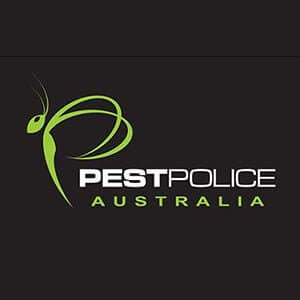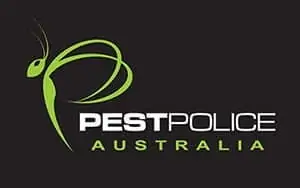In Australia, the winter months are when flies, mosquitoes, and other flying insects tend to disappear. This is particularly true in states, regions, cities, and towns where there are noticeable changes in both daytime and nighttime temperatures. But think again if you believe that pesky critters completely disappear with the onset of the cooler months.
According to statistics, rodents and spiders pose the biggest threat to homes and the problem gets worse for some in the cold winter months.
As the weather gets colder, these pests often move indoors, searching for warmth, shelter, food, and a place to breed until summer returns.
Take the necessary precautions to ensure your home is not where they decide to spend the winter. We will share some eco-friendly pest control tips that will help you keep the pests at bay in the course of winter.
Why Use Eco-Friendly Pest Treatments?
Since more and more home and business owners are choosing to avoid using harmful chemicals, the use of environmentally friendly pest control solutions has grown over the past years.
Eco-friendly treatments focus on getting rid of pests without affecting the environment and its natural inhabitants. This undeniably brings many added benefits for you, your family, and your home.
Here are some facts about using eco-friendly pest control methods:
Effective Pest Control Method
Contrary to popular belief, organic pest control solutions are now just as effective as their conventional counterparts. In some circumstances, it’s even more effective than traditional insecticides.
This should encourage you to hire experts who use eco-friendly methods to handle any pest infestation issues at your residence or place of business.
Safe for Children and Pets
Although it’s unlikely for an adult to consume pest control agents, the same can’t be said for children and pets. Older kids might pay attention when you tell them to stay away, while younger kids, pets, and feral creatures could get sick from ingesting the toxic chemicals.
You never have to be concerned about this happening because eco-friendly pest control methods don’t use harsh chemicals.
Targets Specific Pests
Some insects, such as ladybugs, are helpful and shouldn’t be harmed. This, in addition to keeping children and pets safe, is possible with the use of environmentally friendly products. Only destructive pests are the target of such methods.
For instance, one type of substance employed by pest control companies uses microbes that paralyse larvae’s digestive systems but don’t harm beneficial insects.
Doesn’t Contaminate Food
When you bring your fruits and vegetables home from the grocery store, it’s best to wash them, but chemicals are unfortunately tricky to remove. Additionally, some chemicals are absorbed into the fruits and vegetables during the growing process.
Organic pest control is, therefore, unquestionably safer if you have a garden and occasionally prepare your own food off your own produce.
No Toxic Smell
Traditional pesticides often emit an offensive smell. Even being close to them can make you queasy, inducing cough and wheezing.
Environmentally friendly pesticides are produced using natural components and low-impact chemicals. They don’t leave behind the same offensive smell as their industrial counterparts but are just as effective in pest extermination.
No Health Risks
Numerous health problems have been linked to constant exposure to commercial pesticides. These pesticides are associated with a short list of short-term side effects, including sinus inflammation, respiratory problems, nausea, and skin and eye irritation. Long-term exposure can result in nervous system disorders, birth defects, and an elevated risk to certain types of cancer. The same cannot be said with environmentally friendly pesticides and other organic pest control methods.
Doesn’t Cause Uncontrollable Destruction
Organic methods don’t harm the environment in the same way as toxic pesticides do. These commercially available poison can harm some plants and kill beneficial insects as they eradicate the uninvited ones.
Additionally, over a few generations, some pests may develop an immunity to particular pesticides. Meanwhile, the effectiveness of natural pest control is not known to degrade over time.
Eco-Friendly Pest Control Tips for Your Garden
A successful garden is not something that just happens. It’s laborious work that you work on even before the snow melts. There is planning, the delicate germination of seeds, and meticulous soil preparation. The actual planting, ongoing watering, and tedious weeding follow. After all, the last thing you want to see is a swarm of pests in the garden treating your precious children and pests like a salad bar.
Let’s explore some of the safest pest control remedies you can do to push back uninvited creatures in your garden.
Homemade All-Purpose Spray
With natural ingredients like garlic, onion, and hot pepper combined with soap’s insecticidal and surfactant properties, you can make your own all-purpose insect repellent.
It works particularly well against pests that eat leaves in gardens, but it should only be used when absolutely necessary because it can be fatal to pollinators and other helpful insects.
Parasitic Nematodes
Don’t be alarmed by the word “parasite”. This term simply refers to microscopic creatures whose sole purpose in life is to eradicate underground pests. Invading the target garden pests’ body cavities, beneficial nematodes move through the soil and release bacteria that kill the pest.
The best part is that they get along with other helpful insects and are completely safe for humans, pets, and the environment.
Beneficial Insects
Sometimes the best way to fight fire is to use fire. Many beneficial insects and creepy crawlers (e.g. spiders, mantises) are well-known for being the sworn enemies of garden pests like aphids, flies, mealy bugs, and brown garden snails.
Simply release these beneficial insects into your garden, and they will defend your garden against unwanted pests.
Neem Oil Spray
Making a neem oil spray is another useful option. It eliminates a variety of fungi in addition to keeping hundreds of pests at bay. Additionally, neem oil is natural and risk-free when beneficial insects like ladybugs, bees, and butterflies are exposed to it.
Spray Spinosad
A type of bacterium called spinosad naturally kills insects in your garden without endangering nearby wildlife. Watch insect populations decline as you spray it directly on plants.
The application of spinosad on edible plants can help prevent illness, and pest inspection companies can even help you do it and offer expert application advice.
Eco-Friendly Pest Control Tips for Your Home
The cooler weather arrives and with it comes some unwelcome guests—pests. There is a good chance that you are already considering ways to get rid of them if you discover that your home has been overrun by a variety of creepy crawlies who have decided to call your home theirs.
The good news is that pest control doesn’t always involve harmful chemicals because there are many safe and eco-friendly options for fighting against these pesky creatures.
You can prevent pests from entering your home without using any harmful chemicals by trying the following natural solutions.
White Vinegar
White vinegar is the ideal solution if you’ve already removed any food sources that may be luring ants but they persist despite your best efforts. Ants enter your home and leave a pheromone trail that attracts other ants and this is how other ants continue to find your pantry even after you remove the edibles.
Destroying the chemical trail with vinegar is one trick you can try. Ants will start looking for other food sources once the scent trail is gone.
Essential Oil Sprays
Choosing essential oils can also be beneficial, depending on the pest you attempt to eradicate. For instance, eucalyptus oil is frequently used to deter spiders and gnats. Aphids, flies, and other insects are often repelled by peppermint oil. You may even want to add essential oils to your soap spray.
Herbs
Herbs are completely natural, and they’re also very simple to grow. Pests won’t enter your home if you plant herbs like mint, lemongrass, or citronella plants close to the entrances. They will be repelled by the powerful herb scents and may be forced to find another location to invade.
Citrus Peels
Citrus peels are an excellent choice for natural pest control because of their mild and stimulating scent. Pests like spiders, ants, and mosquitoes can be repelled by citrus peels.
Simply rub the peels over any trouble spots you may have. Areas that can benefit from a quick citrus rub-down include doorways, windowsills, and bookcases.
Keep Your Home Clean
It’s not really a trick, but one of the best natural pest-repelling measures: to keep your home clean. Eliminate dark hiding places that spiders may find attractive and be sure to frequently clean surfaces where food has been consumed to deter ants.
Using natural cleaning products can also serve two purposes: it will keep your home clean as well as ward off pests.
Stay Protected from Uninvited Guests This Winter
A caveat of using natural products to ward off pests is that it may repel some but attract others. Plus, it can be bothersome cleaning up the smell afterwards. When convenience is the goal, it is still best to leave winter pest control to professional exterminators who can conduct a complete pest inspection and even recommend the best eco-friendly pest control methods.
On that note, Pest Police can help Melbourne residential and commercial property owners like yourself to reduce, control, or eliminate pest problems with an assortment of safe and effective insecticide methods. We can even perform a comprehensive pest inspection to determine what you’re up against and recommend the most effective pest treatments to get rid of current pest infestations.
Give us a call and we’ll help you get rid of these sneaky intruders this winter season!

